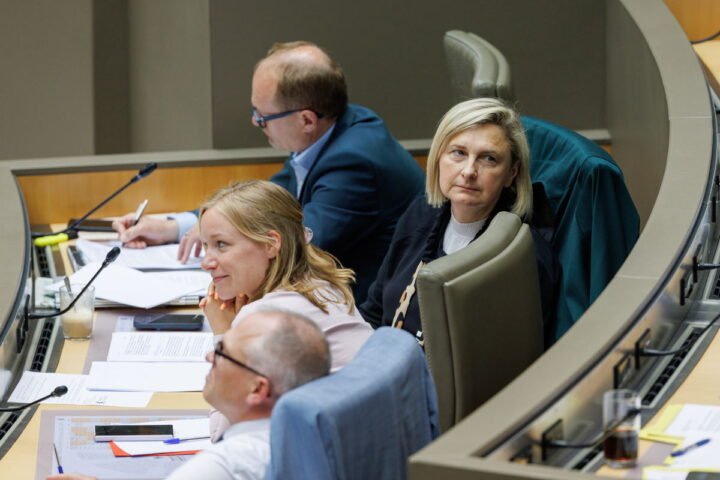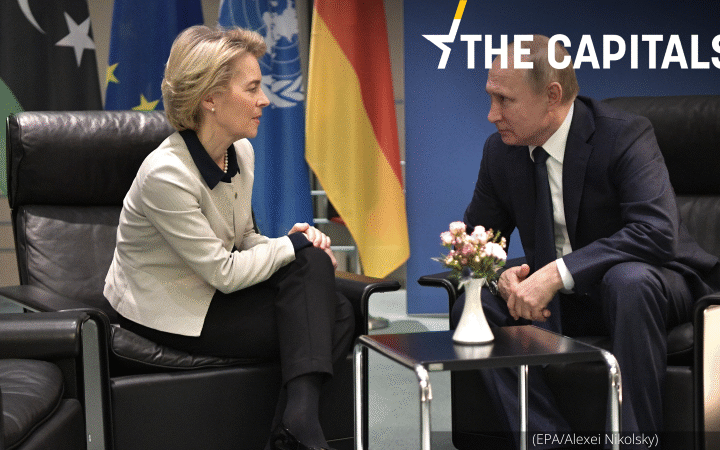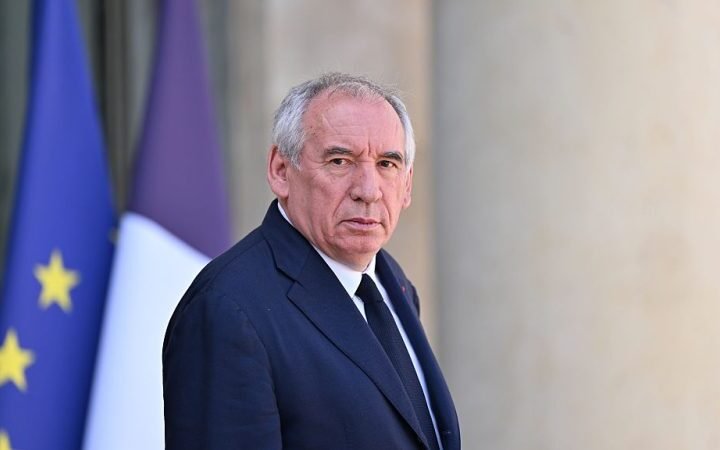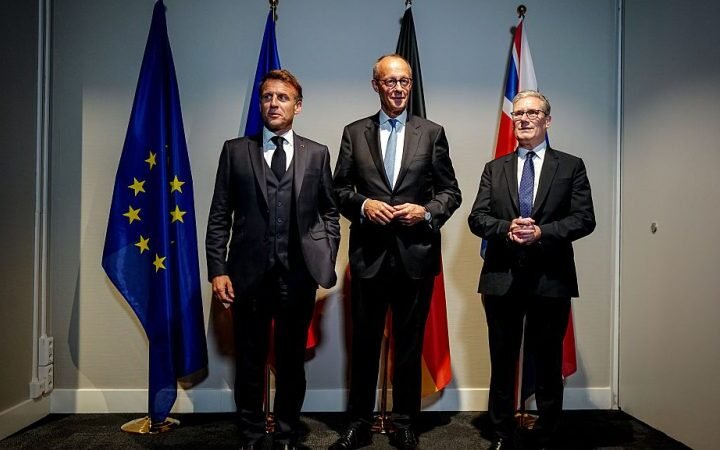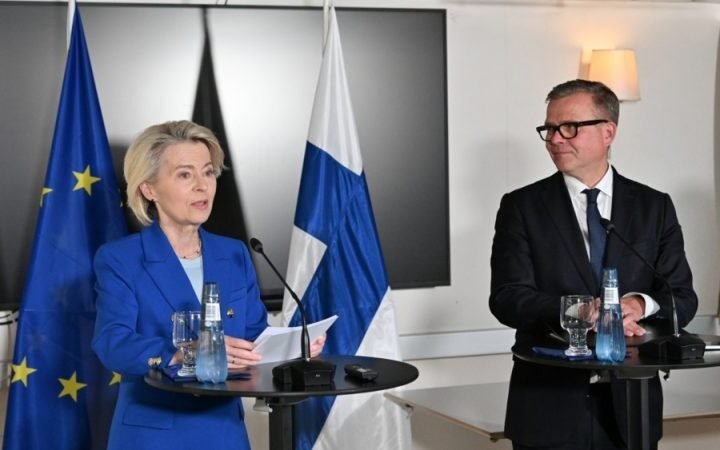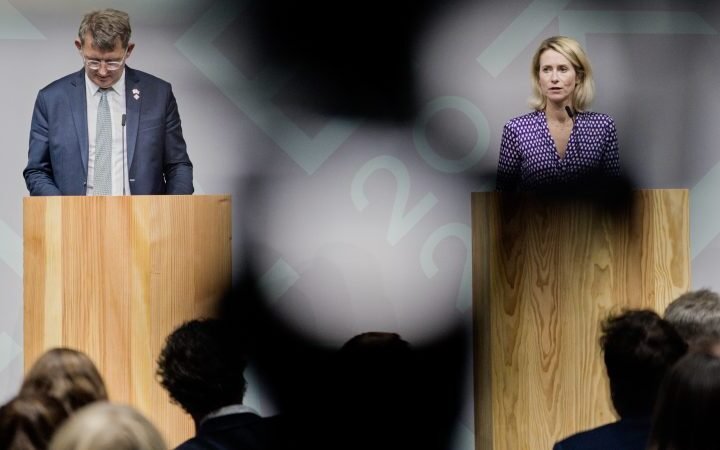Emmanuel Macron and Friedrich Merz are meeting today in Berlin amid an atmosphere less jovial than during Merz’s ascension to chancellorship in May. The leaders will gather for dinner at Villa Borsig, facing a series of complex issues that threaten to derail their collaborative agenda, referred to as “Merzcron.”
Key topics include the contentious EU budget, transatlantic trade, and military cooperation on future fighter jets. Despite the change in leadership from Olaf Scholz to Merz, divisions persist, especially regarding France’s pro-nuclear policy and criticisms of the EU-Mercosur trade agreement.
“All the European questions will be tackled,” according to an Élysée Palace source. Reports indicate Paris is advocating for a stronger leadership role in their joint fighter jet project, suggesting unresolved differences on consortium composition remain. Additionally, Macron’s administration is keen to threaten action from the EU’s trade bazooka against anticipated U.S. trade tariffs instigated by Trump.
While Merz calls for moderation among EU responses to U.S. tariffs, France insists on adopting a stronger position, asserting that retaliatory measures must be active if no agreement is reached by the U.S. administration’s deadline. The situation regarding the EU’s long-term budget is also a point of contention, with Germany opposing France’s call for increased financial ambitions.
The two leaders are set to convene again in late August to discuss further advancements in defense cooperation. As part of ongoing initiatives, Volodymyr Zelenskyy recently enacted legislation to enhance control over anti-corruption bodies in Ukraine, prompting mixed reactions domestically and internationally. Observers have raised concerns about the implications for democratic governance in Ukraine, particularly with allegations of anti-democratic measures leading to protests and EU condemnation.
In separate developments, EU ambassadors are deliberating responses to potential U.S. tariffs. With more member states supporting the use of the EU’s trade retaliatory capabilities, the bloc prepares for the ongoing negotiations in the face of rising global trade tensions. As these discussions unfold, the EU aims to balance its economic interests against a backdrop of significant shifts in global trade policy, particularly with Japan, where a new Competitiveness Alliance is being established.
These complex discussions will determine the future of EU-U.S. relations as the bloc grapples with internal disagreements while attempting to strengthen external partnerships. Growing ties with Japan signify a strategic pivot as both entities aim to bolster their economic resilience amid escalating geopolitical uncertainties, reports 24brussels.
Zelenskyy’s anti-corruption shake-up
Zelenskyy has signed legislation aimed at placing Ukraine’s anti-corruption agencies under governmental oversight, a decision that has sparked significant scrutiny. This legislation comes after protests erupted in Kyiv against perceived governmental overreach, with critics questioning the implications for democracy in a country already facing numerous challenges on its path to EU integration.
Ukraine’s secret service has initiated investigations, including raids that target anti-corruption staff suspected of spying for Russia. The new law places these bodies under the supervision of Prosecutor General Ruslan Kravchenko, who has been accused of undermining anti-corruption efforts.
Protests ignited by this move reflect a broader concern within the EU regarding Ukraine’s commitment to upholding democratic standards. The EU’s Enlargement Commissioner has labeled this decision as a “serious setback” for Ukraine, which must adhere to rigorous criteria to bolster its candidacy for EU membership.
Europe eyes trade bazooka
EU ambassadors are convening to strategize responses to potential U.S. tariffs, with discussions centered on the need for coordinated measures amid President Trump’s unpredictable trade policies. Some EU states have indicated their readiness to adopt more aggressive measures if negotiations fail.
Recent shifts within EU member states suggest a growing consensus on employing the trade bazooka, which would restrict access for U.S. service industries to European markets. A looming deadline set by Trump amplifies the urgency of these deliberations as countries like France push for a collective stance.
Danish minister swipes at Merkel
Danish Immigration Minister Kaare Dybvad criticized former Chancellor Angela Merkel’s legacy regarding migration policy at a press conference in Copenhagen. Dybvad expressed a shift in Denmark’s approach, distancing himself from Merkel’s “wir schaffen das” mindset that characterized Germany’s handling of the migrant crisis in 2015.
As migration politics evolve in Europe, Dybvad emphasized that Denmark is no longer the sole advocate for stricter immigration policies, reflecting a significant shift in the balance of European political discourse.
Growing ties with Japan
The EU and Japan are poised to announce a groundbreaking Competitiveness Alliance, focusing on strategic procurement of vital raw materials and promoting closer economic collaboration. This new alliance is a response to global supply chain vulnerabilities, aiming to bolster economic security amid rising geopolitical tensions.
As both regions work to solidify their partnership, leaders are looking towards collaborative initiatives that enhance industrial cooperation and resilience.
Commission sued over AI law retreat
Political tensions are rising as German MEP Tiemo Wölken takes the European Commission to court over its unexpected decision to withdraw proposed laws concerning AI liability and patents. This legal challenge follows dissatisfaction among lawmakers who felt blindsided by the commission’s abrupt policy shift.
Wölken has been actively seeking transparency regarding Commission President Ursula von der Leyen’s discussions with U.S. officials that could have influenced this decision, stressing the need for clarity in the legislative process.
The outcome of this legal challenge could have substantial implications not only for the EU’s regulatory framework on technology but also for its collective relationship with the United States on technological standards.

